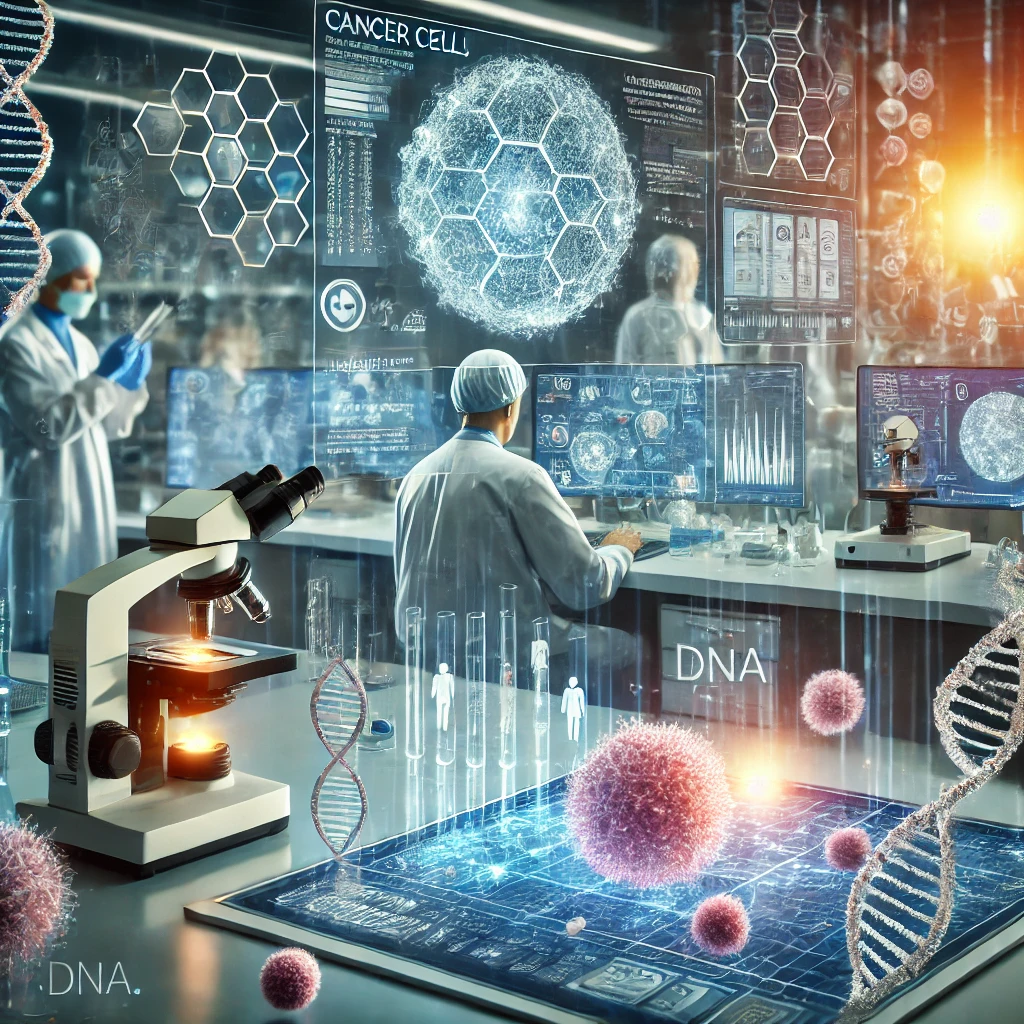
Innovations in Cancer Research: Exploring the ..
Nov 19 - 2024

By Dr. Julie Pratibha Singh, Scientific Advisor, Health29
Introduction
Cancer, an intricate and diverse condition has long challenged the medical community. Traditional cancer treatments, such as chemotherapy and radiation, often take a one-size-fits-all approach, which can lead to varying outcomes and significant side effects. However, the advent of personalized medicine and genetic profiling is transforming the landscape of cancer care, offering hope for more effective and tailored treatments. At Health 29, we are at the forefront of this revolution, providing patients with access to cutting-edge therapies and expert care.
Understanding Personalized Medicine
Personalized medicine, also known as precision medicine, is an innovative approach that considers individual differences in patients' genes, environments, and lifestyles. By leveraging genetic profiling, doctors can identify the unique molecular and genetic characteristics of a patient's cancer. This information enables the development of targeted therapies that specifically address the mutations driving the cancer's growth, leading to more effective treatments with fewer side effects.
The Role of Genetic Profiling
Genetic profiling involves analyzing a patient's DNA to identify mutations and alterations associated with their cancer. This process often includes sequencing the tumor's genome and comparing it to normal tissue. By pinpointing specific genetic changes, oncologists can gain insights into the cancer's behavior, potential resistance to certain treatments, and likely response to targeted therapies.
Breakthroughs in Targeted Therapies
Targeted therapies are at the forefront of personalized cancer treatment. Unlike traditional chemotherapy, which indiscriminately attacks rapidly dividing cells, targeted therapies home in on specific molecular targets involved in cancer growth and progression. For instance, in cases of breast cancer with HER2 gene amplification, drugs like trastuzumab (Herceptin) specifically target the HER2 protein, leading to improved outcomes for patients.
Immunotherapy: Harnessing the Power of the Immune System
Immunotherapy, another pillar of personalized cancer treatment, leverages the body's immune system to fight cancer. Immune checkpoint inhibitors, such as pembrolizumab (Keytruda) and nivolumab (Opdivo), block proteins that prevent immune cells from attacking cancer cells. By releasing these brakes on the immune system, immunotherapy can lead to durable responses in patients with certain types of cancer.
Liquid Biopsies: A Non-Invasive Revolution
Traditional biopsies require invasive procedures to obtain tissue samples. However, liquid biopsies represent a significant advancement, allowing for the detection of cancer-related genetic mutations through a simple blood test. This non-invasive approach not only makes it easier to monitor treatment response but also facilitates early detection of recurrences.
How Health 29 Can Help
At Health 29, we are dedicated to providing low-cost, affordable cancer care services with a single click or call. Our patient-oriented cancer care platform connects patients to the best cancer experts, treatment centers, and quality accredited diagnostic centers at very affordable prices. Our team of experienced oncologists and genetic specialists work closely with patients to develop personalized treatment plans based on the latest advancements in genetic profiling and targeted therapies.
Expert Insights from Dr. Manoj K Sharma and Dr. Rakesh Sharma
Recently, I had the privilege of interviewing Dr. Manoj K Sharma (Director Radiation Oncology, Action Cancer Hospital, Delhi) and Dr. Rakesh Sharma (Senior Consultant and HOD Medical Oncology, Sanar International Hospital, Gurugram), two renowned specialists in genetics at Health 29. Dr. Manoj Sharma emphasized the transformative potential of genetic profiling in cancer treatment. "Genetic profiling allows us to understand the unique genetic makeup of each patient's cancer, enabling us to tailor treatments that are more effective and less toxic," Dr. Rakesh Sharma explained. "By identifying specific mutations, we can use targeted therapies that directly address the underlying causes of the cancer, improving patient outcomes significantly."
Dr. Manoj Sharma also highlighted the importance of continuous monitoring and adaptation of treatment plans. "Cancer is a dynamic disease, and tumors can evolve over time. Through regular genetic profiling and liquid biopsies, we can track these changes and adjust treatments accordingly, ensuring the best possible care for our patients."
Case Studies and Real-World Impact
The impact of personalized medicine can be seen in numerous case studies. For example, patients with non-small cell lung cancer (NSCLC) harboring EGFR mutations have benefited from targeted therapies like gefitinib (Iressa) and erlotinib (Tarceva). These drugs specifically inhibit the activity of the mutated EGFR protein, leading to significant tumor shrinkage and prolonged survival.
Challenges and Future Directions
Despite the promising advancements, personalized cancer treatment faces several challenges. The heterogeneity of tumors, where different parts of the same tumor may have distinct genetic profiles, complicates treatment strategies. Additionally, the high cost of genetic testing and targeted therapies can be a barrier for many patients.
Looking ahead, ongoing research and technological advancements hold the potential to overcome these challenges. Advances in artificial intelligence and machine learning are aiding in the analysis of complex genetic data, facilitating the discovery of new therapeutic targets. Furthermore, efforts to democratize access to genetic testing and targeted treatments are crucial to ensure that all patients can benefit from these breakthroughs.
Conclusion
The revolution in personalized cancer treatment, driven by genetic profiling and targeted therapies, represents a paradigm shift in oncology. By tailoring treatments to the unique genetic makeup of each patient's cancer, we can improve outcomes, reduce side effects, and offer new hope to those battling this formidable disease. As research continues to advance, the future of cancer care looks increasingly promising, with personalized medicine at the forefront of this transformative journey.
At Health 29, we remain committed to connecting patients with cutting-edge cancer treatments and expert care. Our mission is to provide affordable, personalized cancer care that empowers patients and improves lives. For more information on personalized cancer treatment and how we can support your journey, please contact us today.
Acknowledgement
We extend our heartfelt thanks to Dr. Manoj K Sharma (Director Radiation Oncology, Action Cancer Hospital, Delhi) and Dr. Rakesh Sharma (Senior Consultant and HOD Medical Oncology, Sanar International Hospital, Gurugram) for sharing their invaluable insights and expertise on the advancements in genetic profiling and personalized cancer treatment. Dr. Manoj K Sharma's and Dr. Rakesh Sharma’s dedication to patient care and innovation continues to inspire our work at Health 29.
Email us support@health29.in,
Copyright © 2022-24 Health29. All Rights Reserved. Design & Developed By : Innovative Solution Technologies | ISOLS Group